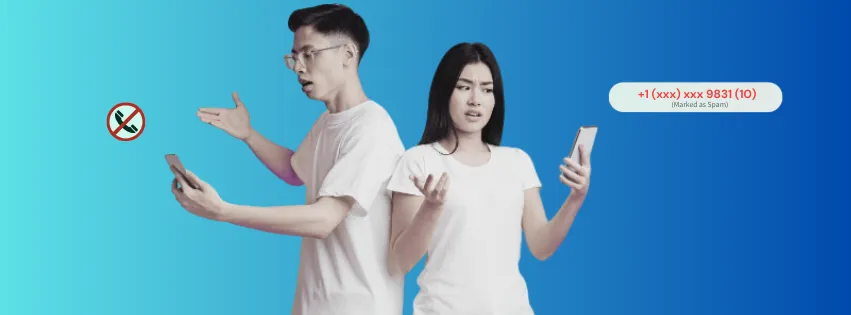December 19, 2024
Everything You Need to Know About TCPA Changes Coming in 2025
Significant updates to the Telephone Consumer Protection Act (TCPA) are on the horizon, following important developments in 2023.
Closing a Major Loophole
In December 2023, the Federal Communications Commission (FCC) announced it was addressing one of the biggest issues within the TCPA—lead-generated communications. These lead generators are responsible for a large portion of unwanted calls and texts. To combat this, the FCC revised its definition of prior express written consent. Previously, lead generators and comparison shopping websites could secure blanket consent to share someone’s contact information with multiple sellers simultaneously. Under the new regulations, businesses must now obtain consent on a seller-by-seller basis—just one of the changes introduced.
Let’s delve into how the FCC’s amendments will affect SMS marketing after we briefly review what the TCPA entails.
What Is the Telephone Consumer Protection Act?
The TCPA is a federal law in the United States that establishes clear guidelines for promotional communications. It outlines rules regarding transparency, consumer rights, privacy, and consent. For anyone running an SMS campaign, the TCPA and the Cellular Telecommunication Industry Association’s Messaging Guidelines are essential resources.
Key TCPA Changes from the FCC
The FCC’s new rules, published in the Federal Register on January 26, 2024, address three critical areas:
DNC Registry Applies to Texts The FCC clarified that the National Do Not Call (DNC) Registry applies to text messages. Previously, this was only an implicit understanding among marketers. Starting March 26, 2024, businesses cannot call or text numbers on the DNC Registry unless they qualify for specific exemptions. By now, most businesses should already comply with these rules.
Blocking Illegal Texts As of July 24, 2024, wireless service providers are required to block text messages originating from numbers flagged by the FCC as sending illegal texts. Although this measure likely won’t directly impact most businesses, it’s a notable step toward reducing fraudulent messages.
Additionally, the FCC recommended that email-to-text services should be opt-in to minimize spam texts. This suggestion may not affect most businesses unless they regularly send texts via email addresses.
Revised Consent Requirements The most significant change involves redefining prior express written consent. While many aspects of the ruling are already in place, a key amendment—the One-to-One Consent Rule—will take effect on January 27, 2025.
Closing the Lead Generator Loophole
Under the new rules:
-Businesses must secure prior express written consent from consumers before sending robocalls or robotexts.
-Consent must follow a “clear and conspicuous disclosure.”
-The content of promotional messages must be directly related to the context in which the consumer gave consent. For example, a consumer seeking car loan quotes cannot be contacted about unrelated loan consolidation services.
The One-to-One Consent Rule specifically targets blanket consent practices. Instead of blanket permissions, lead generators must now obtain consent for each individual seller. To give businesses time to adapt, the FCC has allowed a 12-month implementation period for this rule.
By January 2025, the revised definition of prior written consent will be:
“...an agreement, in writing, that bears the signature of the person called or texted that clearly and conspicuously authorizes no more than one identified seller to deliver or cause to be delivered to the person called or texted advertisements or telemarketing messages using an automatic telephone dialing system or an artificial or prerecorded voice. Calls and texts must be logically and topically associated with the interaction that prompted the consent, and the agreement must identify the telephone number to which the signatory authorizes such advertisements or telemarketing messages to be delivered.”
What Do These Changes Mean for SMS Marketing?
The responsibility for compliance will shift squarely onto the businesses sending the messages. Lead generators and comparison shopping websites are not liable for compliance—the businesses using their services are.
To avoid penalties, businesses must ensure that any lead generation services they use adhere to the new rules. If your vendor is non-compliant, your business will bear the consequences.
For most companies, however, these changes should not drastically alter current practices. If you’ve been following best practices for SMS marketing, you’re likely already compliant. That said, it’s always wise to consult legal professionals for specific guidance regarding the TCPA, the DNC Registry, or any other relevant regulations.
Looking for a seamless way to stay compliant? Lead Indicator’s AI-powered platform offers solutions for managing SMS campaigns while ensuring adherence to all regulations. Connect with an AI expert at Lead Indicator today to learn how we can support your marketing efforts.
More Blogs

A Complete Guide to Understanding DNC Compliance
Unsolicited phone calls are something most of us have experienced — usually at the worst possible time.

Everything You Need to Know About TCPA Changes Coming in 2025
Significant updates to the Telephone Consumer Protection Act (TCPA) are on the horizon, following important developments in 2023.

SMS for Lead Generation: A Beginner's Guide to Launching Your First Campaign
Running a lead generation campaign through SMS offers numerous advantages. It’s often more affordable than alternatives like paid ads, and SMS messages are highly engaging, with quick delivery and impressive open rates.
Still have questions?
Get your answers straight from the experts - contact our sales team for more info about our product features and pricing.

Products
Resources
Company
© Copyright 2025. Lead Indicator LLC. All rights reserved.
